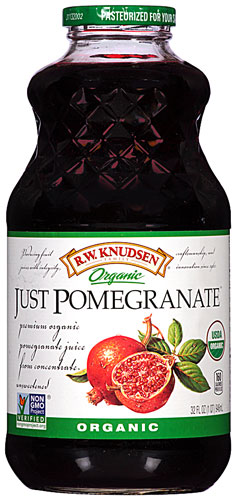Interested in making
holiday mealtime more virtuous without skimping on taste? It's doable, and with little effort. We tapped
Amy Gorin, MS, RDN, a plant-based registered dietitian in the New York City area and owner of
Plant-Based Eats. Below are her top picks and no-sweat tips for including them in your dining mix.
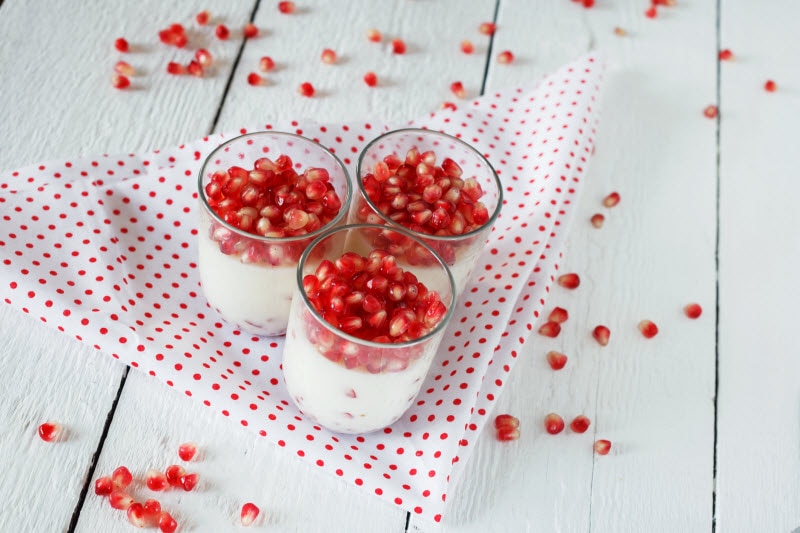
Holiday Foods That Boost Your Immune System
Shiitake mushrooms
“Many people don’t know that
shiitake mushrooms are one of the
few food sources of naturally occurring vitamin D,” Gorin says. This sourcing is especially relevant during winter, when daylight is scarce, and even if sunshine triumphs over clouds, it's too cold in much of the northern hemisphere to soak up rays outside in a t-shirt so that your
skin can manufacture its own vitamin D.
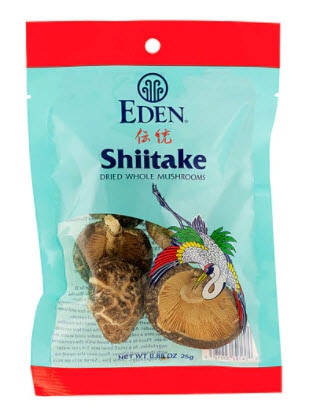
The micronutrient is important for so many things, from immune health to bone health, Gorin notes. “Vitamin D helps your immune cells fight off bacteria and viruses that make their way into the body.”
Shiitakes also have
lentinan, a complex sugar that has been shown to help the immune system, potentially slowing tumor growth. There's more: Mushrooms of all sorts, including the ordinary white, have myconutrients that
studies show boost immune function.
Plus, as for nutrition in general,
shiitakes provide protein, fiber and several other vitamins and nutrients for very few calories, Gorin adds.
Try it
Gorin loves shiitake mushrooms simply roasted or grilled, easy work that makes for a no-fuss holiday side dish. Add some herbs, a little
olive oil and a tiny bit of salt, if you'd like.
Chickpeas
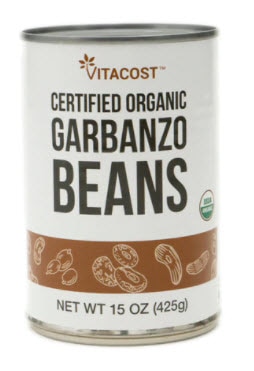
Beans offer enormous bang for the buck, given they're inexpensive and easy to prepare (or no-prep, if they’re canned), but they’re loaded with nutrients and micronutrients: protein, fiber, calcium and more.
“This food is an excellent
source of zinc—and one of the best vegetarian sources of zinc,” Gorin says. In fact, legumes in general are loaded with zinc.
“Zinc is a mineral that’s important for the development of some of the cells that are in charge of defending your body against toxins or foreign substances that threaten your immunity,” Gorin says. In other words,
zinc keeps your immune system on track.
Try it
Chickpeas are a staple in hummus and get tossed in soups. But consider a different approach.
“I love to roast chickpeas and either eat them as a snack or as a salad topper in lieu of croutons,” Gorin says.
If you want to step up flavor, toss your chickpeas with some
sesame oil, canola oil or olive oil, and then sprinkle garlic powder, salt and paprika on them. To roast, spread the beans evenly in an oven-safe pan or dish. Bake at about 400 degrees (no higher) until they start to brown, 15-35 minutes, depending on volume (check them periodically).
Pomegranate arils
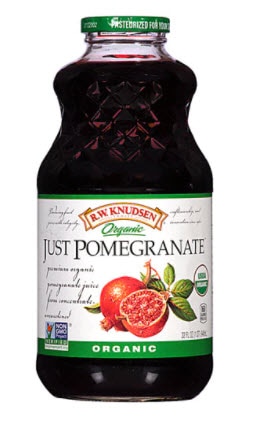
Pomegranate is a seasonal fruit—grab it now!—with immune-helping vitamin C (plus other antioxidants). To be sure, lots of fruits and veggies contain vitamin C, but it's nice to have a break from ubiquitous citrus, especially during special once-a-year holidays.
“Vitamin C is important to get from the food you eat, or supplements, because your body is unable to synthesize it on its own,” Gorin says. “It’s important not only for helping to keep your immune system flourishing—it may also reduce the length and severity of symptoms of the common cold.”
Try it
These ruby gems glam up a dish while adding sweet-sour flavor. Get a healthful start on your holiday feast, by making
chia pudding the night before, a cinch of a task that packs in nutrition. Refrigerate, and the next morning dot your healthy breakfast with the arils before eating it.
Later in the day, if a chocolate dessert is in your holiday meal line-up, brighten its presentation with a handful of arils, another
Gorin favorite you can pull off in a snap.
Mitra Malek is a news journalist and former Yoga Journal editor who writes about wellness.

 The micronutrient is important for so many things, from immune health to bone health, Gorin notes. “Vitamin D helps your immune cells fight off bacteria and viruses that make their way into the body.”
Shiitakes also have lentinan, a complex sugar that has been shown to help the immune system, potentially slowing tumor growth. There's more: Mushrooms of all sorts, including the ordinary white, have myconutrients that studies show boost immune function.
Plus, as for nutrition in general, shiitakes provide protein, fiber and several other vitamins and nutrients for very few calories, Gorin adds.
Try it
Gorin loves shiitake mushrooms simply roasted or grilled, easy work that makes for a no-fuss holiday side dish. Add some herbs, a little olive oil and a tiny bit of salt, if you'd like.
The micronutrient is important for so many things, from immune health to bone health, Gorin notes. “Vitamin D helps your immune cells fight off bacteria and viruses that make their way into the body.”
Shiitakes also have lentinan, a complex sugar that has been shown to help the immune system, potentially slowing tumor growth. There's more: Mushrooms of all sorts, including the ordinary white, have myconutrients that studies show boost immune function.
Plus, as for nutrition in general, shiitakes provide protein, fiber and several other vitamins and nutrients for very few calories, Gorin adds.
Try it
Gorin loves shiitake mushrooms simply roasted or grilled, easy work that makes for a no-fuss holiday side dish. Add some herbs, a little olive oil and a tiny bit of salt, if you'd like.
 Beans offer enormous bang for the buck, given they're inexpensive and easy to prepare (or no-prep, if they’re canned), but they’re loaded with nutrients and micronutrients: protein, fiber, calcium and more.
“This food is an excellent source of zinc—and one of the best vegetarian sources of zinc,” Gorin says. In fact, legumes in general are loaded with zinc.
“Zinc is a mineral that’s important for the development of some of the cells that are in charge of defending your body against toxins or foreign substances that threaten your immunity,” Gorin says. In other words, zinc keeps your immune system on track.
Try it
Chickpeas are a staple in hummus and get tossed in soups. But consider a different approach.
“I love to roast chickpeas and either eat them as a snack or as a salad topper in lieu of croutons,” Gorin says.
If you want to step up flavor, toss your chickpeas with some sesame oil, canola oil or olive oil, and then sprinkle garlic powder, salt and paprika on them. To roast, spread the beans evenly in an oven-safe pan or dish. Bake at about 400 degrees (no higher) until they start to brown, 15-35 minutes, depending on volume (check them periodically).
Beans offer enormous bang for the buck, given they're inexpensive and easy to prepare (or no-prep, if they’re canned), but they’re loaded with nutrients and micronutrients: protein, fiber, calcium and more.
“This food is an excellent source of zinc—and one of the best vegetarian sources of zinc,” Gorin says. In fact, legumes in general are loaded with zinc.
“Zinc is a mineral that’s important for the development of some of the cells that are in charge of defending your body against toxins or foreign substances that threaten your immunity,” Gorin says. In other words, zinc keeps your immune system on track.
Try it
Chickpeas are a staple in hummus and get tossed in soups. But consider a different approach.
“I love to roast chickpeas and either eat them as a snack or as a salad topper in lieu of croutons,” Gorin says.
If you want to step up flavor, toss your chickpeas with some sesame oil, canola oil or olive oil, and then sprinkle garlic powder, salt and paprika on them. To roast, spread the beans evenly in an oven-safe pan or dish. Bake at about 400 degrees (no higher) until they start to brown, 15-35 minutes, depending on volume (check them periodically).
 Pomegranate is a seasonal fruit—grab it now!—with immune-helping vitamin C (plus other antioxidants). To be sure, lots of fruits and veggies contain vitamin C, but it's nice to have a break from ubiquitous citrus, especially during special once-a-year holidays.
“Vitamin C is important to get from the food you eat, or supplements, because your body is unable to synthesize it on its own,” Gorin says. “It’s important not only for helping to keep your immune system flourishing—it may also reduce the length and severity of symptoms of the common cold.”
Try it
These ruby gems glam up a dish while adding sweet-sour flavor. Get a healthful start on your holiday feast, by making chia pudding the night before, a cinch of a task that packs in nutrition. Refrigerate, and the next morning dot your healthy breakfast with the arils before eating it.
Later in the day, if a chocolate dessert is in your holiday meal line-up, brighten its presentation with a handful of arils, another Gorin favorite you can pull off in a snap.
Mitra Malek is a news journalist and former Yoga Journal editor who writes about wellness.
Pomegranate is a seasonal fruit—grab it now!—with immune-helping vitamin C (plus other antioxidants). To be sure, lots of fruits and veggies contain vitamin C, but it's nice to have a break from ubiquitous citrus, especially during special once-a-year holidays.
“Vitamin C is important to get from the food you eat, or supplements, because your body is unable to synthesize it on its own,” Gorin says. “It’s important not only for helping to keep your immune system flourishing—it may also reduce the length and severity of symptoms of the common cold.”
Try it
These ruby gems glam up a dish while adding sweet-sour flavor. Get a healthful start on your holiday feast, by making chia pudding the night before, a cinch of a task that packs in nutrition. Refrigerate, and the next morning dot your healthy breakfast with the arils before eating it.
Later in the day, if a chocolate dessert is in your holiday meal line-up, brighten its presentation with a handful of arils, another Gorin favorite you can pull off in a snap.
Mitra Malek is a news journalist and former Yoga Journal editor who writes about wellness.



